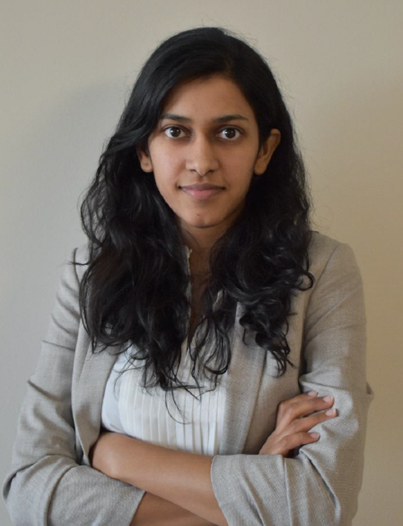Beyond Laboratory Walls: A Voyage through Avantika Gupta's Quest in Cancer Research

Avantika Gupta, a cancer researcher at Memorial Sloan Kettering Cancer Center, began her journey into the field during her dual degree at BITS Pilani (Pilani, ‘09) in biology and computer science. She earned her PhD in molecular life sciences from ETH Zurich.
How did you go about exploring the field of biology when you first started at BITS?
I have always been interested in biomedical science as a career, and I think that by my second year, I was sure I wanted to do a PhD after BITS. I discussed the idea with a few acquaintances who were in graduate school to understand what ‘doing a PhD’ entails and if I could see myself going through the rigorous process. During my time at BITS, I took up electives to learn laboratory skills in addition to coursework. I also did summer internships after my third and fourth years and spent my fifth year doing a year-long thesis to build my profile before applying for PhD programs.
How beneficial is a dual degree in biology plus computer science or biology plus electrical engineering for someone pursuing a research career in biology?
A dual degree combining biology with computer science or electrical engineering offers numerous benefits. Today, interdisciplinary collaboration is increasingly prevalent, necessitating cooperation among colleagues with diverse expertise. Having an understanding of multiple aspects of projects can help bridge communication gaps and elevate project outcomes. In my case, my knowledge of computational analysis makes the process of interacting with bioinformaticians much smoother and enables me to answer specific questions myself.
What are your research interests in your publications, and how do you publish research papers while in college?
For my PhD, I delved into basic science research on early tumorigenesis (initial formation of tumors) using Drosophila melanogaster, investigating the dysregulation of tumor suppressor genes and the mechanisms allowing cancer cells to bypass nutrient dependence for proliferation. Currently, I am studying the processes of genomic instability that promote therapy resistance in breast cancer. My second line of investigation focuses on developing combination therapy to prevent resistance against a
transformational anticancer agent called antibody-drug conjugates. My work aims to improve treatment outcomes for a broader range of patients, potentially revolutionizing standard treatment protocols.
How do you maintain a work-life balance and manage stress?
Perfecting a work-life balance is something I am actively working on. Physically, being separate from my place of work helps me make a distinction between work and home life. I actively try to go on walks and hikes; I don’t think about work if I do something active. I am also fortunate to work with a supportive mentor and lab, which is one of the most important criteria for choosing a lab.
What does a day in your life look like at the Memorial Sloan Kettering Cancer Center?
As an experimental scientist, most of my time is spent doing bench work or analyzing data. I start my day by planning my experiments around meetings, talks, or other commitments. Some part of the day is also allocated to assisting students in the lab, reading, and writing papers or grants. I try to leave some ‘quiet’ time to plan for upcoming experiments, meetings, or conferences towards the end of the day.
How would someone new to the field decide between a research and industry career path, and how can they identify their interests in college?
I would recommend engaging in laboratory courses for practical experience and talking to professors and senior students for insights into career paths. Research requires patience and a long-term commitment, unlike industry positions with relatively quicker results. Understand the pros and cons of different sectors by conversing with individuals in those fields. Try to get hands-on experience with summer internships or during Practice School to figure out what appeals to you the most. You can also utilize the exceptional alumni network of BITS for guidance on career choices.
Reflecting on your transition from a student at BITS Pilani to a cancer researcher, what would it be if there's anything you'd change about your journey?
Looking back on my journey from BITS to where I am now, I feel a sense of accomplishment and satisfaction in working in a field I am so passionate about. I believe I have tried to make the best of my opportunities. Over time, I have learned the importance of networking and getting guidance from those within the system. I have realized that most people are willing to help, and I now actively seek mentorship from peers and superiors for future career steps.
You Might Also Like
- Discover More with BITSology!
- Goa to Goldman Sachs: Sahili Totale’s Road to Financial Excellence
- Dr. Mohit Sewak: Navigating the Frontiers of AI Research, Innovation, and Ethical Leadership
- Exploring Quantum Frontiers: A Journey from BITS Pilani to Advanced Research
- Talking Tech and Entrepreneurship with Kris Inapurapu


 An Institute of Eminence
An Institute of Eminence






